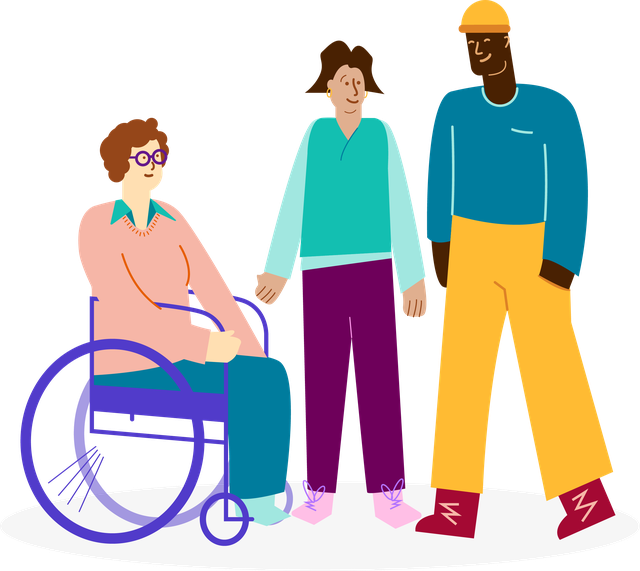When Fami* moved to England to join her husband, a successful businessman, she was hopeful of more opportunities for her and her children than she had in her native Pakistan. But, over a number of years, her husband was both verbally and violently abusive towards her. She was desperate to leave him but had no recourse to public funds. Eventually, after her husband made an attempt on her life, she sought support through her local council, with the local authority moving her and her children to a women’s refuge in Bournemouth.
Homelessness can come in different forms and for different reasons, but one factor that is common through many stories is an experience of trauma. Jo Prestidge is Head of National Practice Development at Homeless Link. She describes how people who have experienced trauma are more likely to experience overwhelming emotions and have difficulties controlling fear and anger. “Because of the physiological effects of trauma on the nervous system.” She says. “It can lead people to struggle with building and sustaining stable relationships due to the breaches of trust which often define it, leaving people with feelings of shame and low self-esteem.”
It’s therefore no wonder that people who experience homelessness are far more likely to struggle with their mental health, with 86% of respondents to Homeless Link’s Health Need Audit reporting to have a mental health need.
But, despite the correlation between trauma and homelessness, many services don’t fully understand its impact on people. For Fami, the domestic abuse she experienced manifested into Post Traumatic Stress Disorder. It also left her with physical injuries including dizziness and problems with her ears. At this time, Bournemouth Churches Housing Association (BCHA) who support Fami were starting to think about embedding trauma informed care across all their services, but they were still early in this process.
Fami was initially placed in a top floor flat, sharing with a woman with an alcohol dependency. As a practicing Muslim, coupled with her physical injuries, Fami describes this as “hell.” But, through a trauma informed approach, BCHA were able to move Fami to a self-contained flat on the ground floor, providing more accessibility to the garden area and private space.
Caroline Moylan is the Director of Homelessness Health & Wellbeing at BCHA. “People who’ve experienced a range of traumas have often been let down by systems.” She says. “But those experiences don’t define them, we decided we wanted our work to be about people seeing a positive future for themselves.” She describes how before the organisational wide strategy there were “pockets of good practice, however our vision was for this to be at the heart of everything we do.”
Prestidge describes trauma informed care as “an approach which can be adopted by organisations in order to improve awareness of trauma and its impact, to ensure that services provide effective support and don’t re-traumatise people.”
BCHA partnered with Homeless Link (through its Trauma Informed training package) to introduce this approach, training all staff in the impact of trauma on people’s lives. They have also been embedding reflective practice (where staff are given opportunity to reflect on situations that have occurred and the way their actions contributed to what happened) in supervisions, meetings and forums. Another important element is empowering people to understand their potential and take control of their futures, so BCHA harnessed a strength-based approach, focusing on working alongside people around want they want to achieve.
BCHA have also made improvements to the physical environments within the services to create spaces that enable psychological safety. This change is particularly apparent in the Refuge in which Fami lives. Support Worker Anna Mclaughlin describes how the women who live here “have uprooted their lives, so the pull to go back to abusive partners can be strong. That’s why the environment needs to feel welcoming straight away.”
Collette Puntis, Head of Quality and Safeguarding, agrees. “There’s a mistaken view that people who have nothing will be grateful for anything.” She says. “But we wanted this environment to show the women what they’re worth.”
Working together with the women living there, the team at BCHA converted the communal spaces, from introducing a new play area, to employing a local artist to paint a mural on one of the landings, to renovating the garden.
But the changes also went beyond the physical environment. BCHA employed a therapist to provide mental health support for the women. Fami says having access to this kind of expertise was critical for her: “When I first came I was crying all the time, I was having panic attacks. But having mental health support helped me to learn coping mechanisms.” Staff at the Refuge also worked hard to better understand each woman’s strengths and goals. This led to Fami moving to a ground floor flat which she loves.
The impact of focusing on people’s strengths and goals is also evident in other services. Sarah Caston is a Housing Manager at YMCA Norfolk and oversees a mixed gender young people’s (16-25) hostel. “I don’t want to be negative with warnings and discipline.” She says. “Spending time with that person and really digging at what’s got on rather than just the immediate behaviour, that’s what works in the long-run.”
When she first joined the organisation four years ago, she says no staff were trained in trauma informed practice. Since then, the service has been working together with Homeless Link to change this. Sarah says this is important as many of the residents have had “really tough lives, having experienced abuse and many coming through the care system.”
The story of a young woman called Ella* who is about to move into her own accommodation shows how Sarah's ethos plays out in practice. She describes how Ella was “always fighting and arguing. She could have been evicted twice.” But rather than ask her to leave the hostel, Sarah and her team worked to understand why she behaved in the fashion she did: “She lived with her alcoholic Father growing up and there were lots of heated arguments. She just wanted to be heard.”
Sarah decided to try and use Ella’s energy and confidence in a positive way, asking her to act as a leader for the women in the hostel and helping to bring any issues they had to light. Through this, Ellla saw a new side to herself. The impact, together with other types of support, means she is now ready to move on to her own independent accommodation.
Prestidge from Homeless Link says that there can be a fear in homelessness services to ask non-clinical staff to go beyond their expertise when considering embedding an approach like trauma informed care. But through drawing on her own experience as an Outreach Worker, she describes how understanding the impact of trauma “very quickly gave me a different framework to understand the people I was working with. Perhaps before where I may have been driven by my need to help, or my services or commissioners need to support them away from the street, I changed my approach and talked to them more about what their goals were and how resilient they were.” She stresses that: “Implementing a trauma-informed approach is not about asking frontline homelessness staff to be therapists, it’s about giving them a framework to understand the people they support, how to approach their work, and what the impact of the work might be on them too.”
For Fami, her support worker Anna embodies this approach. “She shows me she cares.” She says. “She shows me that me and my experiences matter and that I have things to offer. She gives me the confidence to thrive in this society.”
…
*Name changed to protect the person’s identity
You can find more information on Trauma Informed Care and Psychologically Informed Environments on the Homeless Link website. Where you can also book training for your organisation.


